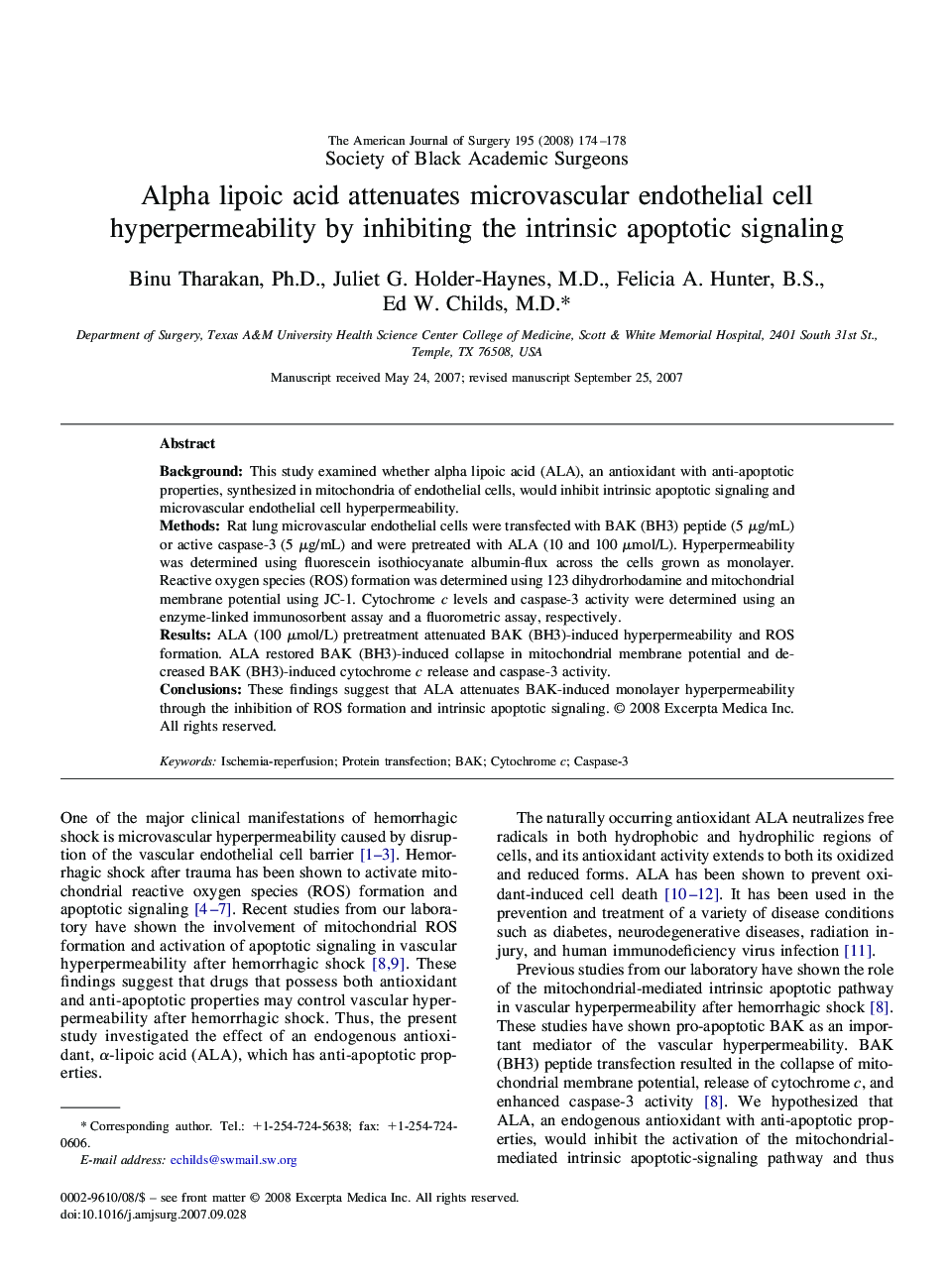| Article ID | Journal | Published Year | Pages | File Type |
|---|---|---|---|---|
| 4281327 | The American Journal of Surgery | 2008 | 5 Pages |
BackgroundThis study examined whether alpha lipoic acid (ALA), an antioxidant with anti-apoptotic properties, synthesized in mitochondria of endothelial cells, would inhibit intrinsic apoptotic signaling and microvascular endothelial cell hyperpermeability.MethodsRat lung microvascular endothelial cells were transfected with BAK (BH3) peptide (5 μg/mL) or active caspase-3 (5 μg/mL) and were pretreated with ALA (10 and 100 μmol/L). Hyperpermeability was determined using fluorescein isothiocyanate albumin-flux across the cells grown as monolayer. Reactive oxygen species (ROS) formation was determined using 123 dihydrorhodamine and mitochondrial membrane potential using JC-1. Cytochrome c levels and caspase-3 activity were determined using an enzyme-linked immunosorbent assay and a fluorometric assay, respectively.ResultsALA (100 μmol/L) pretreatment attenuated BAK (BH3)-induced hyperpermeability and ROS formation. ALA restored BAK (BH3)-induced collapse in mitochondrial membrane potential and decreased BAK (BH3)-induced cytochrome c release and caspase-3 activity.ConclusionsThese findings suggest that ALA attenuates BAK-induced monolayer hyperpermeability through the inhibition of ROS formation and intrinsic apoptotic signaling.
